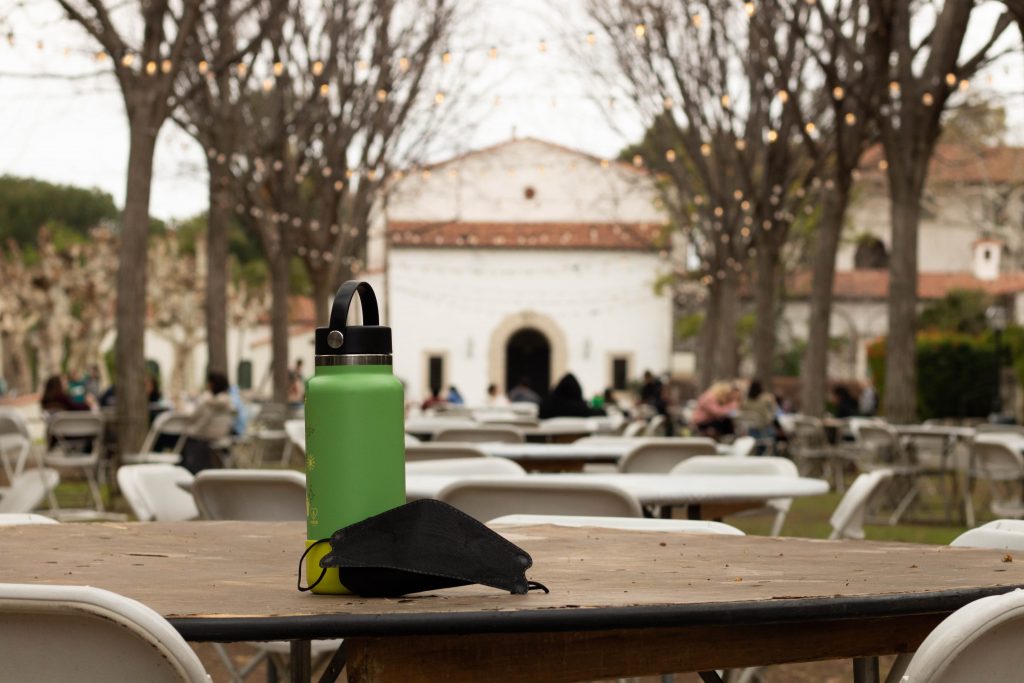Ellen Hu ’24
Editor-in-Chief
When the COVID-19 pandemic outbreak first became prevalent, several things struck me. First, my regular lifestyle of staying at home was no longer irregular. In fact, it was normal and smart if you had the opportunity to do so. Then came the immediate introduction of masks and, perhaps most important to me, I could no longer use my reusable boba cup when I went out. It was devastating.
If this pandemic has done anything, it’s challenged the way I see sustainability. For the first time, I’ve had to decide between my safety and consideration of the way these choices impact the environment around me.
I realize that the ability to reflect on my environmental impact is a privilege on its own. It’s also something that has influenced how I see and am able to address sustainability efforts now.
That being said, I’ve regularly considered how I can continue to reduce my environmental footprint over the past two years. Attempting to do this in an age where these practices go against what is considered to be safe is difficult, to say the least.
Barriers stood at every corner. When I wanted to go out and support local restaurants at home, I found myself accumulating disposable takeout containers that I hadn’t been collecting before. This has only become more prevalent while at Scripps. Every day I find myself feeling guilty as I throw away my take-out containers and the occasional plastic fork when I forget to bring my own utensil set to Malott.
Already producing more trash than I was used to, I turned to masks with hopes of reducing the pile of goods in my hands that needed to be thrown away. As a result, I walked into the pandemic opting for cloth masks. Not only were they adorned with beautiful patterns that could complement my outfits, but they were also washable and reusable.
Then, when the Omicron variant hit, the choice disappeared in my head. It was also reinforced through policy at school. The cloth masks were neatly tucked away and the disposable surgical, KN95, and KF94 masks made their way into my outfits.
The problems didn’t stop there. At the peak of the pandemic, I found myself ordering more goods online. I didn’t want to be walking into enclosed stores with the possibility of being exposed to the virus if I didn’t need to. As a result, I found myself surrounded by a lot more cardboard boxes and the root cause of more carbon emissions due to the goods’ transportation.
I’ve found that these decisions are all about tradeoffs. In many of these situations, the tradeoffs are the same as they were before the pandemic. Yet, the pandemic has added another layer to these decisions. It was no longer a simple consideration of this or that — choices that previously only concerned myself now concerned the people around me as well.
It took a little adjusting, but over the course of navigating these struggles I did what little I could. I started by addressing my food situation: bringing my own reusable utensils to Malott when I was going to have a meal and filling my reusable water bottle in Clark before heading out for the day.
Coming to Scripps also gave me a new opportunity to pay close attention to what I was consuming. With several options at Malott for each meal, I started making a conscious effort to eat a more vegetarian diet.
However, these efforts shouldn’t only fall on individual students’ shoulders. There’s no doubt that it’s difficult to find ways to maintain sustainable efforts while balancing the health of students and staff, but there’s so much more that Scripps can do to give the student body more opportunities to reduce their environmental footprints.
We can start by participating in the green takeout containers that the other 5Cs have been using throughout the pandemic. Then, we can even go one step further — one possibility is to follow in the footsteps of other colleges across the nation who are setting up mask recycling programs for their students.
Schools such as Tufts University, University of North Carolina at Chapel Hill, and Red River College have partnered with their local recycling companies to produce these programs. Used masks are dropped into collection bins. On a regular basis, the bins are sealed for 72 hours before being sent to a recycling station to be disassembled.
As we enter a stage in the COVID-19 pandemic where case numbers are dropping and restrictions are slowly being lifted again, it has become increasingly easier to consider how our lives can transition back towards the way they were before the pandemic. I hope that one of the things our community keeps top-of-mind is the way we transition towards a more environmentally sustainable campus throughout this period. There are going to be challenges, but it isn’t impossible.
Image Source: Ellen Hu ’24



